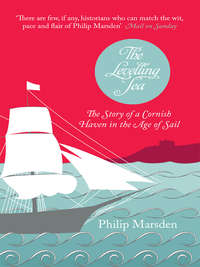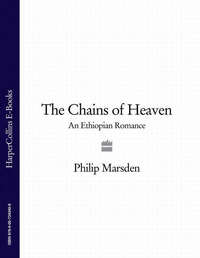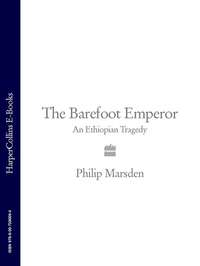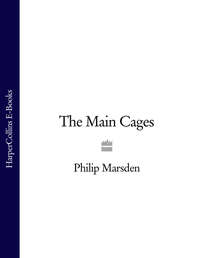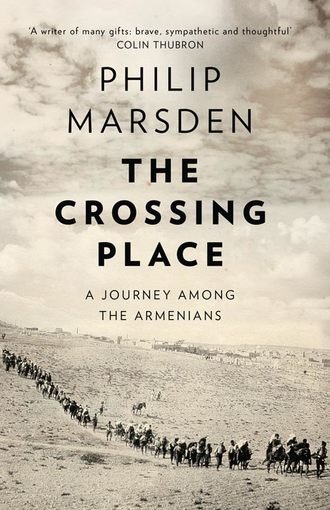
Полная версия
The Crossing Place: A Journey among the Armenians
Through Yervant the war began to come into focus. It seemed to have forced out of those who did not flee a kind of raw volatility, which became so ingrained that no one noticed it any more. If they did, it was as a matter of pride. Liberté totale was something Yervant mentioned often. To him it was the principle for which the war was fought, but to me it seemed no more than a description of its worst excesses.
We walked later by the sea. Yervant loved the sea. He did not notice the years of dirt and broken things that swilled about in its swells. He breathed in deeply and squinted along the shore.
‘I like the peace here, don’t you?’
The traffic bumped and growled along the freeway behind us. A couple of fishermen argued on the rocks. I nodded.
Yervant carried on answering my questions about the war. He ran through a catalogue of chaos, bombings, kidnappings, snipers, checkpoints when they killed at random, days when they fired ten shells a minute, all day.
One morning last year he had been shaving when there was a massive explosion. He thought it was an earthquake; on the radio they said it was an earthquake. But in fact it was a gas storage-tank hit by a shell. One piece of the tank had landed outside an Armenian school in Bourdj-Hamoud, nearly two miles away. The piece, said Yervant, was big enough to park two cars underneath.
On another occasion a running street-battle had spilled over into Yervant’s building. There was shooting on the stairs and a militia man burst into the flat. Yervant was waiting there with a revolver. He killed the man before he even knew anyone was there.
Yervant gripped my arm. He pointed to a flock of herring-gulls gathered to squabble over some waste. ‘You like birds?’
‘Yes, I do.’
‘Me too. In the war I would come down and shoot them with my gun. My friend in Canada says there you cannot do it. You must have a licence. A licence – imagine that!’
One afternoon, through a series of introductions, I traced another side of Beirut’s Armenians in another darkened room in Bourdj-Hamoud. Here the atmosphere was quite different. Half a dozen men in track-suits sat around a television, cracking pistachio nuts. There was none of Yervant’s eccentric tension, but instead a kind of palpable toughness.
The youngest of them was Manouk. He was little more than twenty and was small and wiry and wore a neatly clipped moustache. It didn’t take long before we were talking about Karabagh. The Turks and Soviets, he said, were helping to flush the Armenians from their villages. Every day they were being killed. Driven from their villages and killed – just like 1915. Now. Today! And what was the West doing? Nothing. As always. Just carrying on their love affair with the Russian reformers.
I told him that Armenia would have to fight its own battles from now on and he agreed. And in fact I knew that they were, these ones in this room. I had heard of the arms that filtered through from Beirut to Karabagh. There was a sharper spirit here. It was in Manouk and the others, in their crunching of pistachios, in the pages of the Armenian magazine GAYDZ! (meaning ‘flash of fire’), with its images of oppression, of heads under boots, nooses and cages, and the technical diagrams of a Chinese grenade-launcher, an M-16 and a Kalashnikov. It had been there also, in the late 1970s, when the Armenians too learned the effectiveness of small paramilitary units.
Both were based in Beirut: ASALA (Armenian Secret Army for the Liberation of Armenia) and JCAG (Justice Commandos of the Armenian Genocide). Of the two the JCAG were much the more secretive and sinister, and operated with surgical efficiency. One FBI officer was quoted as saying, ‘The Justice Commandos were known as a singularly effective group of assassins. When they went to work somebody usually died.’ There was something very Armenian about the JCAG. Their operation in sixteen different countries, their attention to detail and meticulous planning, their expertise with firearms and explosives, the way they traced the movements of their victims (invariably Turkish diplomats), getting so close to the cars when shooting that powder burns were often found on the skin.
And it occurred to me, listening to Manouk recounting their methods, that I’d heard precisely the same language used to explain the pre-eminence of Armenian goldsmiths.
This is how it would happen. You’d be in a taxi. You’d be watching a wrecked building pan across the window or the sun play on a sheet of high glass. You’d be thinking about something else entirely. In Kuwait there would be some atrocity and you wouldn’t yet know and the taxi would pull up in a strange courtyard and there they’d be waiting for you, five of them in black t-shirts tugging at your door. And then? Would the Armenians be any help? Part of me wanted to find out. But another part, and much the larger, feared kidnap more than death.
I was thinking about that after my meeting with Manouk. It was a bright afternoon and I was in a taxi with three Arabs. I was looking at the sun play on the sea and thinking that I now had only two days before the land offensive was due to begin when the music on the radio was interrupted and I could make out the names – America, Saddam Hussein, Kuwait, Britain. The Arabs started talking with the driver – about what? About the Bastard Americans, about the Bastard British! About the Great Satan and the Little Satan! About me. I cursed my foolishness. We plunged into the back-streets, heading west. I leaned forward and said where are you going, I wanted Bourdj-Hamoud. But the driver just shook his head. Damn it, what’s happening? The car slowed and turned into a courtyard and the Arabs got out and one of them leaned back in and said: ‘My friend, you better be careful.’ And the driver pulled away again and the buildings in the streets seemed suddenly sharper as I searched desperately for something I recognised.
Armenian script. When I saw it appear above the shops, I felt for the second time the relief of sanctuary and realized how much, in a Middle East where I felt an unwelcome alien, I depended on the Armenians. So much so that later that day I gave in. I’d promised myself I would not go into West Beirut: West Beirut was under Muslim control, kidnap country. But there was an Armenian there going to Yerevan and I needed to speak to her. The Armenians said they’d get me in, by ambulance, and we were waved through all the checkpoints.
As I waited to meet my contact, the door of the office suddenly burst open. A man stumbled over the threshold, sweating and short of breath. ‘You have a British here?’
‘Yes,’ I said.
‘You must leave at once. You have been seen.’
I left. I climbed into the back of the ambulance and we headed out of West Beirut towards the Ring and the burnt-out strip of the Green Line. An Armenian nurse sat with me. ‘Don’t worry, we’ll soon be through the checkpoint.’
‘I’ll be glad to get back to Bourdj-Hamoud.’
‘They took two yesterday. A French and a Belgian.’
‘Where?’
‘Just near here, but they were drug dealers. They shouldn’t have gone in. We have an expression in Armenian that a broken jar breaks again on the way to the rubbish tip.’
The evenings in Antelias, with the monastery gates locked after sundown, were long and dark and empty. On my last night a thunderstorm tumbled down from the mountains. The lights failed, came on again, then disappeared altogether.
I stood up from the desk in my room and went to the window. The rain was falling with a tropical ferocity. It sluiced off the flat roofs and filled the headlight beams of the traffic – bobbing Buicks, battered Mercedes, empty trucks swishing into the night. A pack of wild dogs splashed through the puddles. Two Lebanese soldiers crouched beneath their rain-capes on the turret of a tank. Then for an instant Beirut was lit up by lightning and the thunder again took a whip to the hills.
There was a knock on my door. A young priest holding a candle said His Holiness would like to see me. I followed him through the darkened passages to a room with a great arched window that rose from the floor and surveyed the courtyard below. Often I had looked up at that window and watched the bishops pace behind it like caged birds. Now the rain spotted its surface and ran down it in wide rivulets. The Catholicos sat alone watching it in the dark, preying on a large cigar.
‘Please, sit down,’ he said.
We sat in silence for a moment, looking out at the rain.
‘You will not see me again,’ he announced.
‘Oh?’
‘Lent is coming and I am tired. I shall go to Oxford to rest.’
‘A retreat?’
‘A retreat.’ He looked away and again we were silent while the rain hissed outside. The Catholicos looked down on the flooded courtyard like a brooding general. Then he asked, ‘And you?’
‘Damascus,’ I said. ‘I will leave tomorrow for Syria.’
‘You will have trouble in Syria.’
‘I was hoping perhaps you could help me cross the border.’
‘I will leave a letter for you, but I would not go to Syria. The police will make trouble.’
I could not tell him that in fact I would be relieved to be out of the Lebanon, that at least in Syria there were police. So I thanked him for his advice and for all his help, and wandered back through the unlit cloisters to my room.
Early the next day an Armenian photographer took me into Bourdj-Hamoud to find a lift to the Syrian border. It was a bright morning. The night’s storm had left its mark in shining pond-sized puddles and the traffic was heavy. Cars queued three deep at the checkpoints, impatient to get into the city to trade and shop and busy themselves in the Beiruti way. No one, except me, seemed at all bothered that in about twelve hours’ time the deadline for the land offensive in Kuwait was due to expire.
Coming through the checkpoints in the other direction were dozens of vehicles with skis strapped to the roof. That year on Mount Lebanon the snow had been frightfully disappointing.
‘Terrible,’ the photographer lamented. ‘All thin and slushy.’
‘I’m sorry to hear it,’ I said.
‘But this year they are all going skiing. If there’s one thing the Beirutis are good at, it’s forgetting,’ he chuckled. ‘I mean, does this seem to you like a city that’s been sixteen years at war?’
‘Yes,’ I said. ‘It does.’
3
History will search in vain for the word ‘Armenia’.
Winston S. Churchill
After all, who now remembers the Armenians?
Adolf Hitler, discussing use of his death-squads
The main road from Beirut to Damascus had only been open a few weeks. Lebanese government forces controlled it to the pass below Mount Lebanon, Syrians beyond that. Shared taxis had begun to ply the route between the two cities, braving the checkpoints for the sake of a good fare.
Looking back down towards Beirut, it could have been any Mediterranean town with its bushy-pine slopes and the dust and the terraces and the olive groves. From a distance it looked like Nice or Genoa. But the road was scarred with tank tracks and by the time we reached the abandoned hill resorts of Aley, Sofar and Bhamdoun all the villas – once the summer courts of the Gulf sheikhs – were utterly destroyed. At the pass of Dahr-al-Baidar, where the Syrians took over, fog brushed the mountain slopes and piles of snow lay beside the road. At the checkpoint, an old Volvo burst into flames. The Syrian soldiers dashed about in a panic, piling snow on the bonnet to smother the fire, barking orders, letting the traffic through without question. The Armenian taxi-driver accelerated past them with relief and we started the long, sweeping descent towards the Bekaa valley.
For me, the Bekaa embodied all the most dangerous aspects of the Middle East. From years of news reports and hearsay, I imagined a place something akin to the Valley of the Shadow of Death or one of the inner circles of Hell. I saw a dark shadowy declivity into which crawled extremists too extreme for Beirut; I pictured Western hostages tied to the bottom of cars and, from above, Israeli planes bombing and strafing its southern reaches. Out of the valley came trained terrorists and hashish (for both of which it was the world’s leading supplier), and each year the Syrians earned more than a billion dollars from the opium. Even its name sounded dark and threatening: Bekaa – like a rifle shot or a cry of jihad.
So it was a surprise to find that the valley was very beautiful, that the Hizbollah and their hostages woke to mornings of a brilliant, feverish light; that the militias – Palestinian, Shiite, Kurdish – could run their combat training against a backdrop of sensuous, flesh-smooth slopes. But I was pleased to get across it, through the narrow corridor of Syrian control, up to the Lebanese frontier on the far side. At the Syrian border beyond, I waited seven hours for a visa. President Assad scrutinized me from three walls with his benign bank-manager’s stare.
Just before four o’clock, an official summoned me to the desk. ‘Border closing.’
‘My visa?’
‘Bukra. Tomorrow.’
‘Tomorrow Damascus will say yes?’
‘Maybe yes, maybe no.’
Damn you. I was now caught in no man’s land – unable to get into Syria, and unable to re-enter Lebanon; I’d used up my ‘une seule visite’ visa.
Only a few carefully placed US dollars eased me back across the Lebanese border, back into the Bekaa. In a few hours’ time the allied forces would launch their offensive in Kuwait and the Bekaa Valley was the last place I wanted to be.
Once again the Armenians were able to offer me protection. Just up from the border post I found the village of Anjar, where a series of bubbling springs leave a smudge of green on the dry slopes. The village was made up entirely of Armenians and they welcomed me in. Just outside, the Syrian secret police had set up camp. I didn’t think I had much to thank them for, but the sight of all their military hardware between me and the Hizbollah was something of a relief.
There was a doctor named Caspar who ran an occasional clinic in Anjar. I’d met him in Beirut but today he was here. I found him in his surgery with a queue of patients; he said he’d be half an hour and advised me not to leave the building. So I waited beneath the anatomical diagrams and listening to the stern advice to young mothers, reflecting that in fact I was glad to be in Anjar, to have the opportunity to trace one of 1915’s few episodes of successful defiance.
The story of Anjar is a story of exile and return, and exile again. A conglomerate of six old Armenian villages, Anjar’s people came originally from an area around the mountain of Musa Dagh, at the far northern end of the Levantine coast. The town is divided into six segments, which retain the names of the villages that they left. When in July 1915 the deportation order reached Musa Dagh, Armenian opinion was divided. Some said they should resist. Others saw there was no point; the Turkish forces were far too strong and the order, after all, was only for deportation. About sixty families complied with it. They were never seen again.
The rest took to the mountain. On its seaward edge they stretched two large shrouds between the pines. One had a cross on it, the other, in English: ‘CHRISTIANS IN DISTRESS: RESCUE’. The opposite slope they defended against repeated Turkish attacks. There was little ammunition and still less food. After more than seven weeks, supplies were virtually exhausted. But then one morning, the wind blew away a sea-mist and just off the coast lay the French ship Guichen. Four thousand villagers scrambled down the cliff and were ferried aboard. They were taken south, to Port Said.
For four years they sheltered in tents on the edge of the Sinai Desert. After the war Musa Dagh came under French rule, so it was safe to go back. The Armenians returned to their beloved villages and found their clapboard homesteads half-hidden by mulberry trees, and the apple orchards a tangle of weeds. They set about clearing the orchards and restocked the mulberries with silk worms.
But in the 1930s, new pressures came to bear on the region. Eager to keep the Turks at bay, the French conceded to them the sanjak of Alexandretta – which included Musa Dagh. Once again the Armenians were forced to flee. This time the French gave them land in the Bekaa Valley. Many died in the harsh winters but others held on, convinced, like those of Bourdj-Hamoud, that it was only a matter of time before they’d be allowed back. It soon became clear after the Second World War that Musa Dagh would remain in Turkey. The Armenians resigned themselves to permanent settlement in the Bekaa, not at the camp, but at Anjar where the spring-fed soil and distant peaks reminded them of home.
Below the springs they cut irrigation ditches and planted poplars along their banks. They’d grown apples before, so they grew apples here; before long Anjar’s orchards were the best in the country. They built neat houses, neat and diligent in the old way, and laid them out in a grid with a church at its head. They prospered in Anjar; there was something about the site. One man, ploughing nearby, unearthed some old stone which turned out to be the remains of an Ummayyad palace, now one of the Lebanon’s most prized ancient sites.
During the most recent fighting Anjar had swelled with refugees from Beirut. Caspar explained to me that it wasn’t just the shelter, it was the land itself. The springs and the poplars and the abiding sense of a distant mountain; there, he said, people felt more at ease, closer to Armenia. In times of trouble they gravitated to Anjar.
Mount Sannin was undoubtedly a powerful presence. It rose steeply from the far side of the Bekaa, screening Beirut. Its snow-topped peak shone in the sun. And perhaps for the Armenians it made a good substitute not only for Musa Dagh but for that other mountain, the first mountain, the one they had fled centuries before. For local lore has it that from Anjar’s spring the first rainbow rose and, using it to navigate, Noah had steered the Ark to shore on Sannin’s rocky summit.
Caspar helped me track down Tomas Habeshian, one of Anjar’s grand old men. We met him on the church steps, a tall, straight-backed man in an astrakhan hat. He stretched out his left hand to greet us; his right was crippled with arthritis.
Driving down through the town (the Armenians forbade me to walk: ‘Not safe,’ they said) we spent much of the rest of the afternoon in Anjar’s tea-room, while Syrian jeeps bounced back and forth outside the window, and the proprietor laid his best cakes before us. ‘On the house!’ he said in honour of Tomas.
He had been little more than ten when he fled with his family up the slopes of Musa Dagh. The whole thing, explained Tomas, had really been a big adventure. No, he didn’t recall being frightened. He remembered climbing the trees and larking around the rocks, but fear, he didn’t think that was a part of it. What he did remember was Kavanes and his quixotic antics. An Armenian of the old school, Kavanes had lived all his life on the land and was full of a peasant pride that Tomas, as a boy, found comic. He was nearly sixty when they went up Musa Dagh armed only with hunting rifles and flint-locks, and a few sticks of dynamite. Early on, Kavanes stepped forward to volunteer for an attack.
‘He took the dynamite and put a pistol in his belt. Down the hill he went.’ Tomas leaned forward and hushed his voice. ‘Slowly, slowly, from tree to tree. He came out of the woods and crept up to the slope above the Turks. He lit the fuse and lobbed the dynamite down. One, two, three … Nothing! So he lit another. This time – PAF!
‘You know, I think Kavanes was more surprised than the Turks! We watched him turn and run back up the hill in fright. He felt sure the Turks were following him. They were running at him, they grabbed his coat, but still he tried to run away, pulling and pulling. He took the pistol and fired it over his shoulder, and the noise terrified him so much he thought it was him who had been shot and fell to the ground.
‘He touched his forehead: no blood! He got up and started to walk towards us. I can walk! And he looked behind him and all along, it had been a branch that had caught his coat. There weren’t any Turks. All of us in the trees were laughing so much, but he was trying to look like a returning hero!’ Tomas took off his glasses and wiped his eyes. ‘Oh, that Kavanes!’
Tomas was one of the few still alive who had survived the whole saga. He gazed now through the window, quiet and sad after his picaresque tale, and the sun brought out the creases on his face. I felt a strange awe at the alien experience of this man’s life and how its suffering had not left him bitter like so many, but poised and full of humour.
I asked him, ‘Do you have a family?’
‘Yes. In America mainly. Los Angeles.’
I couldn’t picture this proud old man in California. ‘Have you been there?’
‘Oh yes.’
‘And you liked it?’
‘I liked it.’ He looked away. ‘But I could never live there. America is no place for an Oriental man.’
Caspar passed me on to some friends who said they could put me up for the night. Four generations sat on divans around a hot barrel-stove. A two-year-old girl sat on the knee of her great-grandfather, tugging at his whiskers. Her mother, Anahid, carried in a tray of rattling glasses. It was a warm, homely room and, for a moment, I forgot all about deadlines and the hostility of the Bekaa.
A man with a feathery moustache leaned over and poured me a glass of arak. ‘What are you doing here?’
‘Trying to get to Damascus.’
‘Well, I’m trying to get back to Kuwait.’
I said that perhaps now he would not have to wait long.
‘I have waited long enough!’
‘Why the hurry?’
‘Three kilos,’ he winked at me. ‘I have three kilos of gold in a Kuwaiti bank.’
I pictured the gold sitting now in a Baghdad vault, but did not mention it. I turned instead to Anahid who had retrieved her daughter from the old man’s hair. ‘You know, it’s not a bad place, Anjar. Better than America – I’d never bring up children there!’
‘Why not?’
‘It’s so dangerous.’
‘And the Bekaa is safe?’
She sighed. ‘Well, it’s home. I went to Los Angeles and I felt afraid even to step outside. All those drugs and murders. I was glad to get back.’
I’d never thought I would hear that from a Lebanese Christian, here in the Bekaa. Anahid’s brother, Levon, had come down from Aleppo for a couple of days. He was more Levantine than Armenian, with eyes full of dark, undirected resentment. He heaved down another shot of arak, leaned towards me and jabbed at the window. ‘He’s just a few kilometres up there.’
‘Who?’
He grinned at me and sank back in his chair, but did not answer.
‘Who?’ I said, annoyed.
‘Your Terry Waite!’
‘Levon!’ snapped his sister. ‘Quiet!’
I told her not to worry, but the cosiness of the room had gone. There was silence and no one could look at me. Levon proposed a toast to the Western hostages but it was timid and forced, and fell flat. Later they all left and I was shown into a small bedroom. I pushed open the window and looked out across the valley. It was a clear night and very cold; the moon glowed deep blue on the snow of Sannin.
In Kuwait the deadline was about to pass but here in the Bekaa, with its strange medley of militants and the dispossessed, its gaolers and hostages, all was quiet.
4
In exile one lives by genius alone.
Vladimir Nabokov
Behind the wheel of his crimson, 1960s Plymouth Fury, its interior flushed with bordello-red velvet upholstery, Stepan looked very small. But he was the wiliest man I met in the Middle East, where wiliness counts for everything. He could only have been Armenian.
I met Stepan in Anjar. He had quick, dark eyes and his energy palpitated from a wiry frame. He was going to Damascus and on a sunny morning we drove back to the border. Today the Lebanese would not let me out of the country unless they were sure the Syrians would let me in. And I couldn’t confirm that without getting across the two miles of no man’s land. It posed no problem for Stepan. To him and his Red Beast, the route between Anjar and Damascus was routine. He took my passport and swung the Beast round in a wide arc up towards the frontier. He didn’t even slow down to go through it, but simply hung an arm out of the window and waved to the border guards. They waved back.



